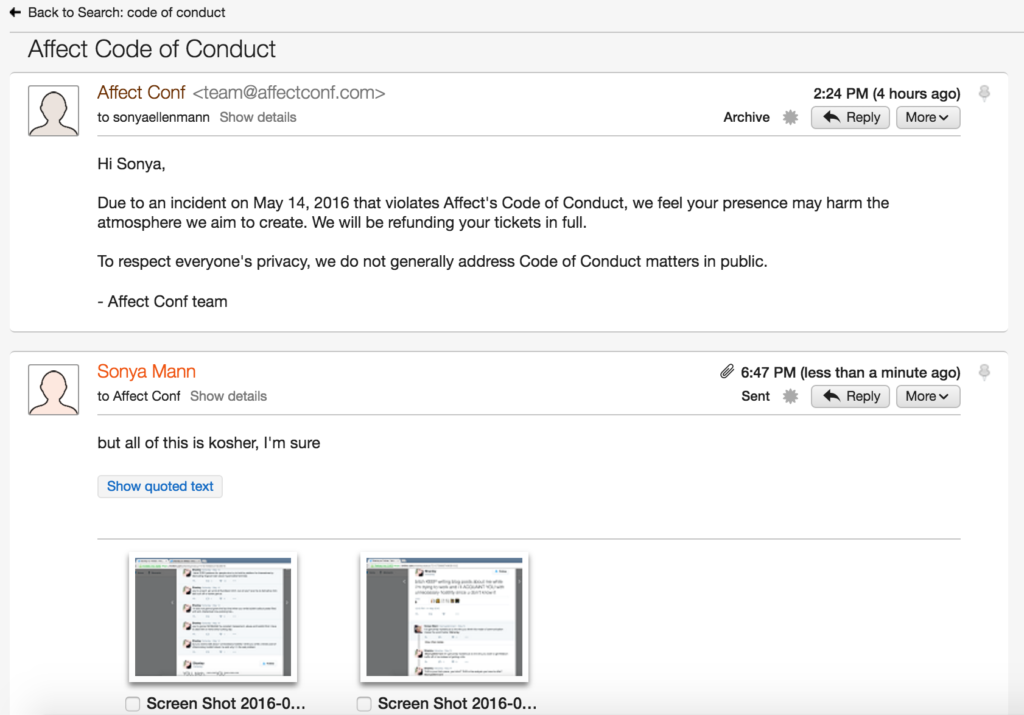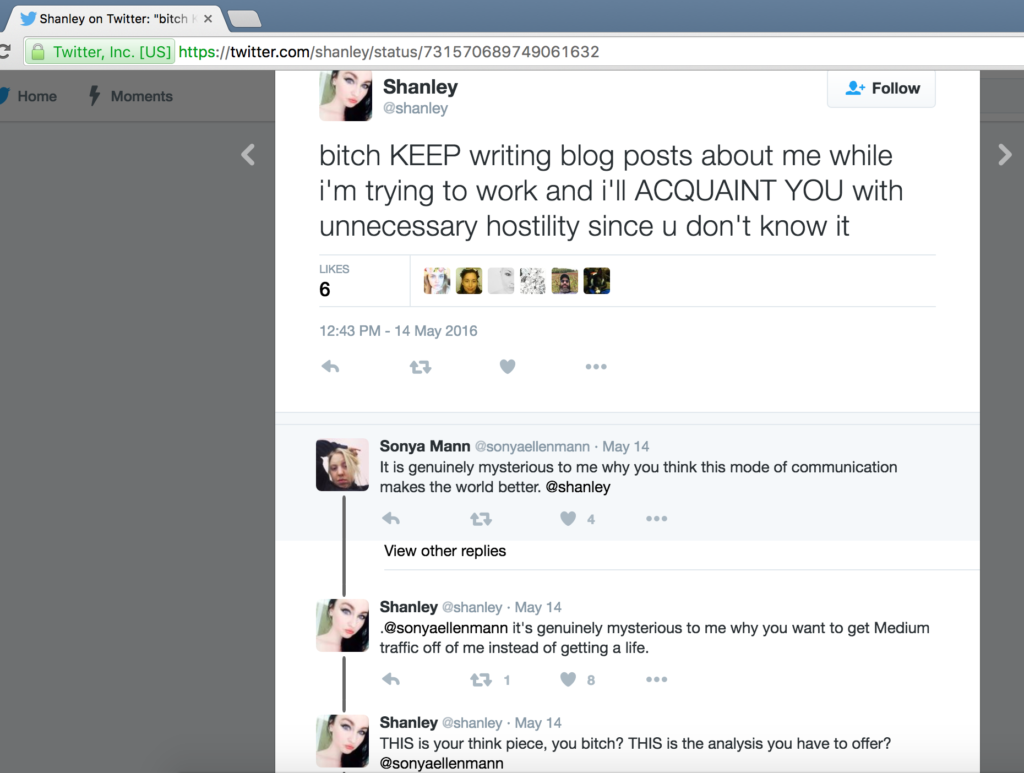This is a follow-up to yesterday’s somewhat controversial post about politeness.
My thesis consists of these points:
- Expressing anger respectfully is more useful to any movement you happen to belong to than expressing anger viciously.
- Lashing out at well-meaning but uneducated people is counterproductive. (Note that this does not apply to people who’ve had ample opportunity to be coached — however, identifying these people without knowing them beforehand is difficult, so I think it’s better to default to being kind. This also doesn’t apply to, for example, unsolicited dick pics or equivalent acts that are themselves way outside of respectful norms.)
If your goal is to convince people to agree with you, berating them whenever they try to start a conversation is not the best strategy. If your goal is to repel those people and make them think the subculture you belong to is full of jerks, then this is exactly the type of response you should have. Crucially, it doesn’t matter whether you’ve heard their question a million times before — they will still think, “Yeesh, lighten up.”
I made this argument about feminism yesterday, but it applies equally to any other belief system or cause that’s trying to recruit. Just to throw another example in the ring, open-source software development is often chastised for being awful for newbies. And if you look at any community that is explicitly trying to boost their ranks, the evangelists never begin their spiel by saying, “Here are the reasons why you suck, along with everyone who fits into a category with you.”
Those Christian missionaries who show up at your door don’t open with, “Hey, if you weren’t such a shitlord you would already be researching ways to avoid the eternal hellfire of divine condemnation.” Instead they say something friendly like, “Good morning, have you accepted Jesus Christ as your savior?” Their uninvited sales pitch is still annoying, but it doesn’t make me think, “Wow, people who identify as Christian say I’m a terrible person. When I ask them to help me figure this out, they say I’m an even more terrible person for not reading the Bible on my own. I don’t want to interact with Christians. Whenever the topic of Christians comes up amongst my friends, I’ll warn them that Christians are jerks.” (Whether or not certain groups of Christians qualify as jerks for other reasons is beside the point.)
As an example from the opposite side, vegan activists are notorious for being judgy and aggressive. I’m sure this is frustrating to reasonable vegans who just want to explain their ethical stance and share recipes with people. And it does exactly zero to make people want to experiment with veganism. PETA’s shenanigans have had the opposite effect in at least one case. An explanatory approach like Food, Inc. is much more inviting.
Various people told me I was tone policing yesterday, and after having thought about it more, I agree that I am. According to the Geek Feminism Wiki:
The tone argument is a form of derailment, or a red herring, because the tone of a statement is independent of the content of the statement in question, and calling attention to it distracts from the issues raised. Drawing attention to the tone rather than content of a statement can allow other parties to avoid engaging with sound arguments presented in that statement, thus undermining the original party’s attempt to communicate and effectively shutting them down.
I fundamentally disagree that holding people to high standards of discourse is equivalent to “effectively shutting them down.” I believe that people can argue without resorting to verbal abuse — and if they can’t, what is the point of arguing? No one who doesn’t already agree with you will be swayed.
There are situations where it is obnoxious to tone police, and the reasons why people get angry totally make sense (see this comments thread for lots of examples; TRUCEConf is another exasperating example). I am angry for many of the same reasons! However, if someone is slinging around ad hominens or saying things like, “Your comment is trash,” they’re not debating at an object level either. When I discuss an issue with another adult, I expect them to use phrases like “that attitude makes me angry because of xyz” instead of “I can’t believe you fucking said that”. And if they don’t maintain that level of civility, I disengage, because targeted hostility stresses me out.
I think there are appropriate ways to express anger — this open letter to a father who doesn’t pay child support is a great example of what I mean — and ways to express anger that alienate anyone who doesn’t already understand your grievances and share your context. In my view, activists should try to optimize for the former method of expressing rage. This is especially important on the internet, where everyone is talking in public, because random people will see your arguments. Some of them will be totally unfamiliar with your subculture or ideology, and if you’re not calm and reasonable they will notice that and associate it with your subculture or ideology.
When you want actual change, you’ll rarely get it from pretending every person in a position of privilege is an agent of the enemy.
— City Lop (@kivikakk) May 14, 2016
This is how I closed my first post on this topic, and it reiterates my two bullet points from the beginning:
It’s true that sometimes people enter conversations, especially about social justice, with ill intentions. But treating everyone as an enemy until they prove otherwise is very harmful — it ends up burning the people who just couldn’t figure out why you were upset without more guidance and more information. Assuming good faith is not always accurate, but it’s a much more useful stance than defaulting to hostility.
Then again, some people take the cynical view that activists’ main function is to generate controversy and stay in the news. But I’m sad to see people who champion causes that I care about follow that pattern.



